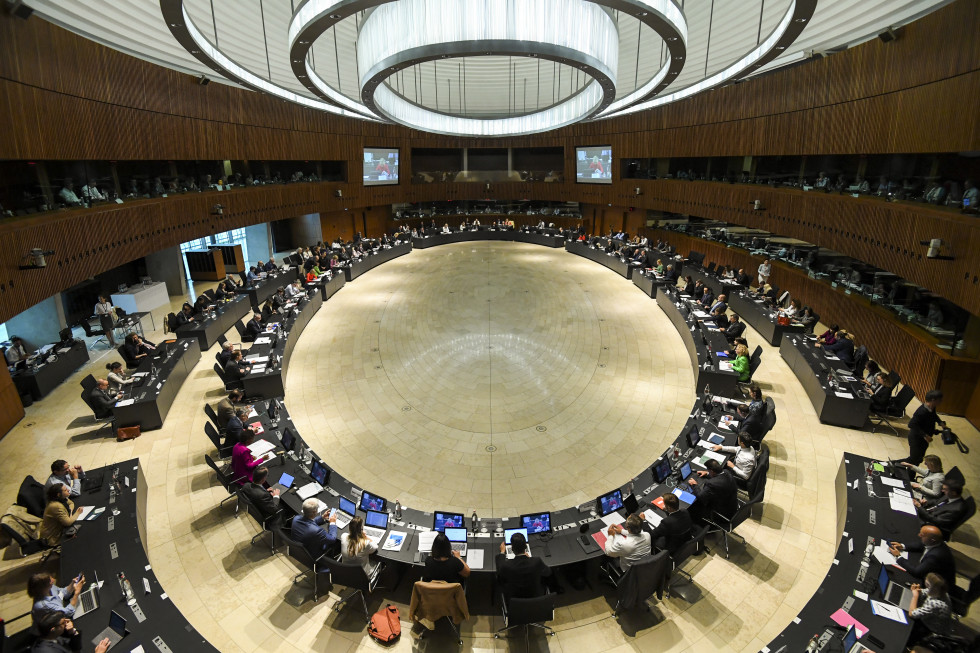EU ministers unanimous on consumer credits – they should be realistic
- Ministry of Economic Development and Technology

EU Competitiveness, Internal Market and Industry Council meeting | Author European Union
The ministers also discussed the enhancement of the European semiconductor ecosystem and dedicated their attention to the prudent use of raw materials and discussions about an alliance by means of which the EU can set the standards of good practices towards a green transition.
The discussion on the proposed text of the Consumer Credit Directive had already commenced at the time of the Slovenian Presidency of the EU Council, and the general approach on this matter is especially important from the aspect of further harmonisation of consumer credit services. "We want to ensure that consumers are more specifically protected when borrowing, and that these safeguards do not impose excessive burdens on companies and impede established practices for the benefit of consumers," explained State Secretary Židan. Slovenia particularly welcomes the provision that exempts from registration those suppliers of goods and services which enable consumers to make payments in instalments without involving a creditor as a third party, which represents a proportionate solution.
The ministers also discussed the establishment of a framework of measures to strengthen the European semiconductor ecosystem or the so-called Chips Act. State Secretary Židan welcomed the efforts to accelerate the development and production of chips in the EU and stressed that the European Union must start developing and producing chips as soon as possible and to the greatest extent possible, whereby the mobilisation of private and public financial resources in the Member States presents an exceptionally great challenge. "Despite our commitments in the field of chips, we hope that the reallocation of funding under the Horizon Europe and the Digital Europe Programme will not jeopardise the implementation in other fields, such as artificial intelligence and cybersecurity," stated Židan. "Slovenia advocates the position that, when setting up large production facilities, the EU must also promote connections with small and medium-sized companies within the value chain, as these companies are the backbone of the European economy," he added.
Within non-legislative activities, the ministers discussed enhancing the resilience of the European strategic industrial ecosystems, whereby Slovenia assessed that further cooperation through relevant initiatives at the EU level must be enhanced, such as Important Projects of Common European Interest (IPCEI) and, for example, industrial alliances. The Members of the Council also emphasised the importance of alliances in the field of raw materials, whereby State Secretary Židan pointed out that the development of capacities for the extraction and processing of European raw materials must also be accelerated, including the support for activities of recycling, replacement and innovation in this field. "The pandemic reminded us how important the healthcare ecosystem is. On the other hand, the war in Ukraine is reminding us, among other things, about the sensitivity of the food sector. There are important measures in both sectors, which address security, research, development, innovation and, of course, an increase of production or cultivation capacities," noted Židan. The discussion about the prudent use of resources also continued during a working lunch at which the ministers talked about strengthening the single market for the green transition. The low-carbon circular economic model can be a competitive advantage for the EU and simultaneously serve as a positive example to the rest of the world.

